Health
Gombe, UNICEF Push Back Polio in Akko as Compliance Improves Amid Challenges
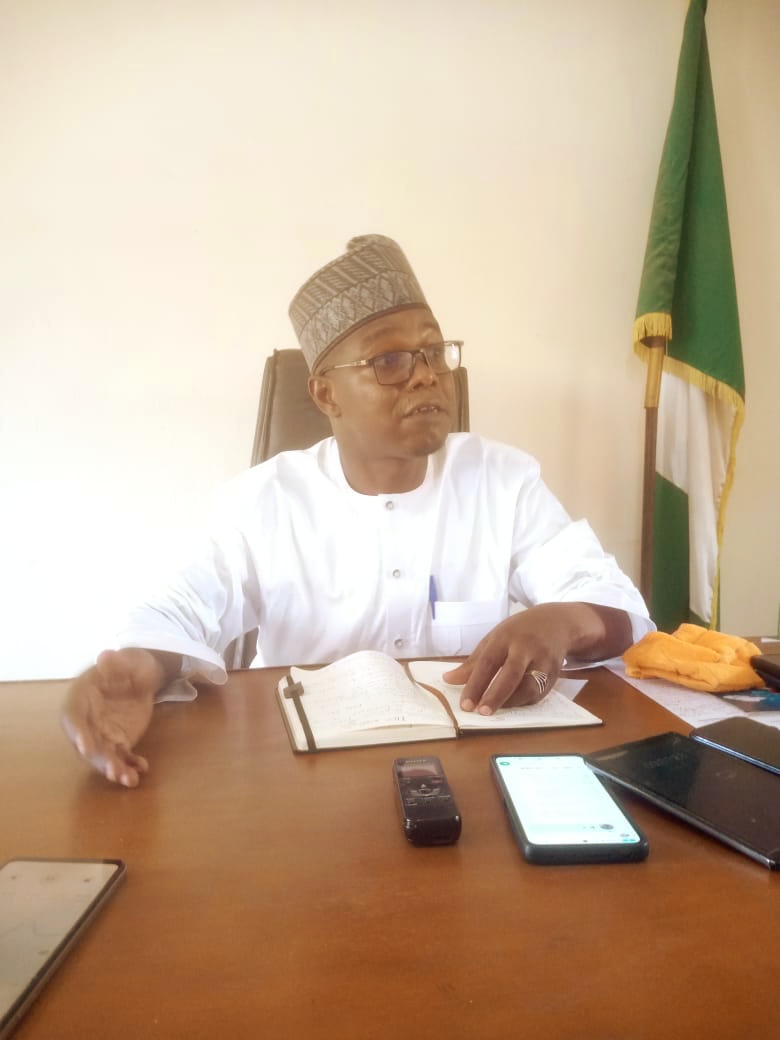
By Muhammad Jamil Abubakar
The recent April round of the Polio Vaccination Campaign in Gombe State, which coincided with the National Immunization Plus Days, has recorded notable success despite initial setbacks in areas like Garko Ward in Akko Local Government Area.
The campaign, a collaboration between the Gombe State Government and UNICEF, is part of ongoing efforts to eradicate polio and reach every child, even in the most difficult-to-access communities.
According to the Acting Primary Health Care Coordinator of Akko Local Government, Muhammad Umar Lawanti, the campaign initially faced resistance in Garko Ward, one of the most populous areas in the state with over 70 households refusing the vaccine in the first two days.
Some residents cited dissatisfaction with government support in areas such as mosquito net distribution and economic palliatives, questioning the prioritization of vaccines over basic needs.
However, this tide began to turn following the intervention of key partners, the Fathers Response Rapid Team, a grassroots initiative set up by the Gombe State Government, in collaboration with traditional institutions and UNICEF, took proactive steps to engage with the communities.
Through door-to-door advocacy, community dialogues, and targeted messaging about the dangers of Polio which remains incurable the number of noncompliant households dropped significantly to just 10.
Community leaders and traditional rulers have played a pivotal role in reversing vaccine hesitancy, Umar Adamu, Secretary of the Akko Emirates Council and the Fathers Response Rapid Team, explained that the council quickly deploys delegations to communities with high resistance, fostering enlightenment and encouraging compliance through trusted local voices.
Health workers, too, have shown exceptional commitment. Motivated by the shared goal of a polio-free Gombe, vaccination teams have embraced inclusive strategies, such as incorporating women, local influencers, and grassroots mobilizers into their teams. Initiatives like “Mama 2 Mama” and the engagement of Chief Agents have proven instrumental in penetrating resistant households.
The Deputy Chairman of Akko Local Government Council, Habibu Hassan, acknowledged the challenges but highlighted the progress.
“We now have 20 teams working across the vast terrain of Akko, especially to reach hard-to-reach and migrant communities in Garko,” he said.
“Migration due to insecurity in neighboring states has increased the population here, but we are adjusting our strategies.”
He also praised UNICEF’s unwavering support in logistics, training, and public education, urging parents to continue supporting the campaign.
“This is about the future of our children. We cannot relent,” he emphasized.
Despite initial challenges, the April polio campaign in Akko underscores the power of collaboration, community trust, and consistent engagement.
With traditional leaders, health workers, and global partners like UNICEF working hand-in-hand, Gombe State is making meaningful strides toward a polio-free future.
Health
Gombe Hosts National Nursing Workshop, Urges Review of Curriculum and Embrace of AI in Healthcare
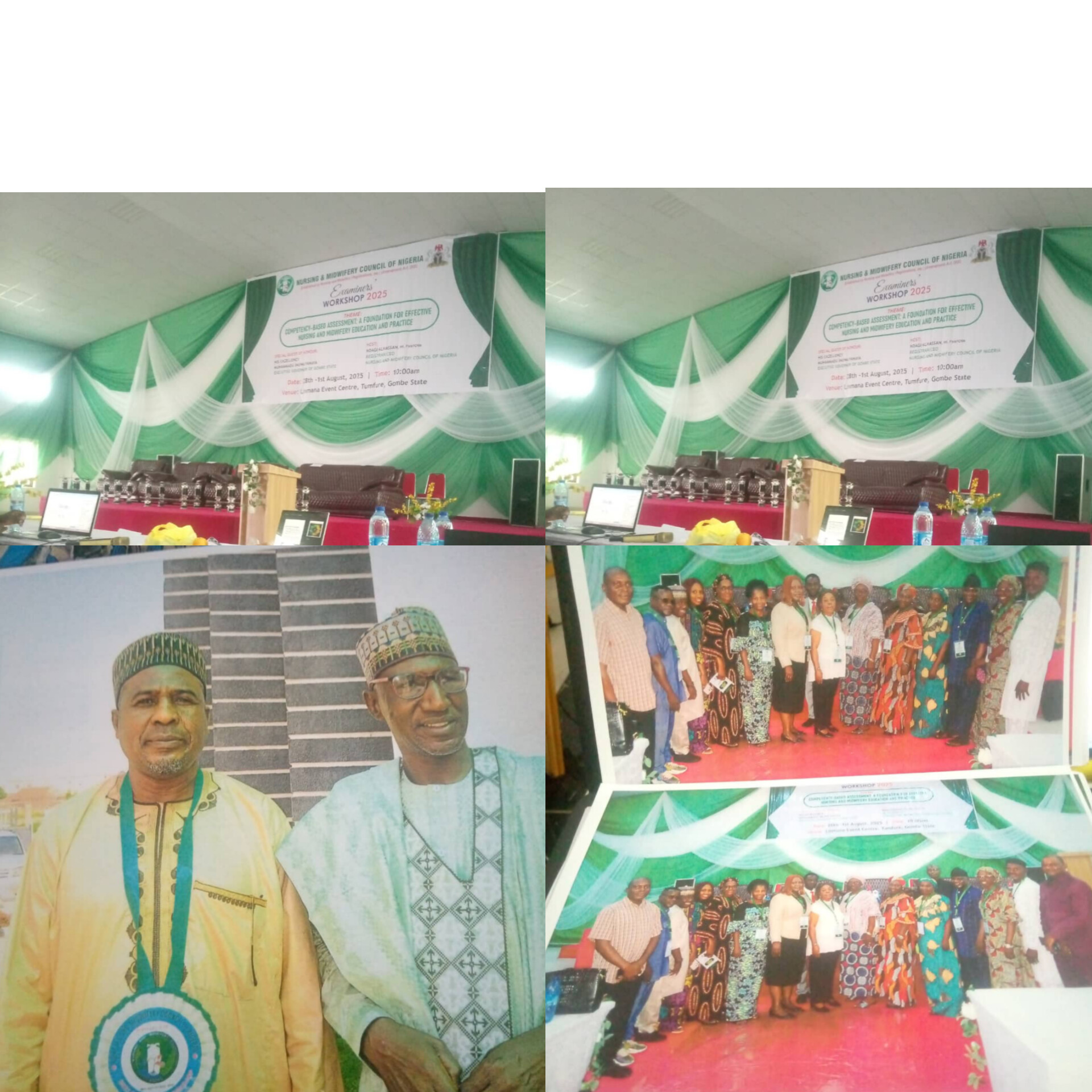
By Editor Daily Facts
Nurses and midwives across Nigeria have been charged to uphold professionalism, compassion, and adaptability in delivering quality healthcare services, as Gombe State hosted the 2025 National Examiners Workshop organized by the Nursing and Midwifery Council of Nigeria.
Declaring the workshop open on Tuesday in Gombe, Governor Muhammadu Inuwa Yahaya, represented by the Commissioner for Health, Dr. Habu Dahiru, commended the Council for selecting Gombe State to host the crucial event. He emphasized the commitment of his administration to improving the health sector through policy reforms, infrastructure development, and capacity building.
“We have prioritized the health sector by upgrading Primary Healthcare Centres (PHCs) across all 114 wards in the state. This is to provide an enabling environment for healthcare professionals, including nurses and midwives, to deliver effective services,” Dr. Dahiru said.
He revealed that the state government has made significant improvements to the welfare of nurses and midwives, and urged them to show empathy in dealing with patients.
Dr. Dahiru also used the platform to call for a comprehensive review of the national nursing and midwifery training curriculum. He noted that the advent of Artificial Intelligence (AI) and other technological innovations in the global healthcare landscape demands that Nigerian practitioners adapt to modern trends.
“This is the time to update the training manual to reflect emerging realities. The future of healthcare lies in innovation, and nurses—especially those in rural communities—must be equipped with the skills and knowledge to meet these evolving challenges,” he added.
The guest speaker, Professor Saleh Garba, lauded the organizers of the workshop and urged participants to make practical use of the knowledge and skills acquired during the training. He described the workshop as a vital platform for updating participants on global best practices in nursing and midwifery education.
Also speaking at the event, the Emir of Akko, Alhaji Umar Muhammad Atiku, described nurses and midwives as pivotal members of society who contribute meaningfully to community well-being. He appealed to all levels of government to prioritize investment in their welfare for improved service delivery.
The theme of the 2025 workshop, “Competency-Based Assessment: A Foundation for Effective Nursing and Midwifery Education and Practice,” underscores the need for a modernized, skills-based approach to training that aligns with international standards.
The workshop brought together examiners, educators, health professionals, and stakeholders who deliberated on critical aspects of nursing education, including curriculum review, assessment methods, and integration of emerging technologies.
As the healthcare sector continues to evolve, stakeholders at the workshop agreed that the challenge ahead lies in how quickly nurses and midwives can adapt to change—not only to enhance service delivery but also to strengthen the nation’s overall health system.
ENDS
Health
Gombe Hosts National Nursing Workshop, Urges Review of Curriculum and Embrace of AI in Healthcare
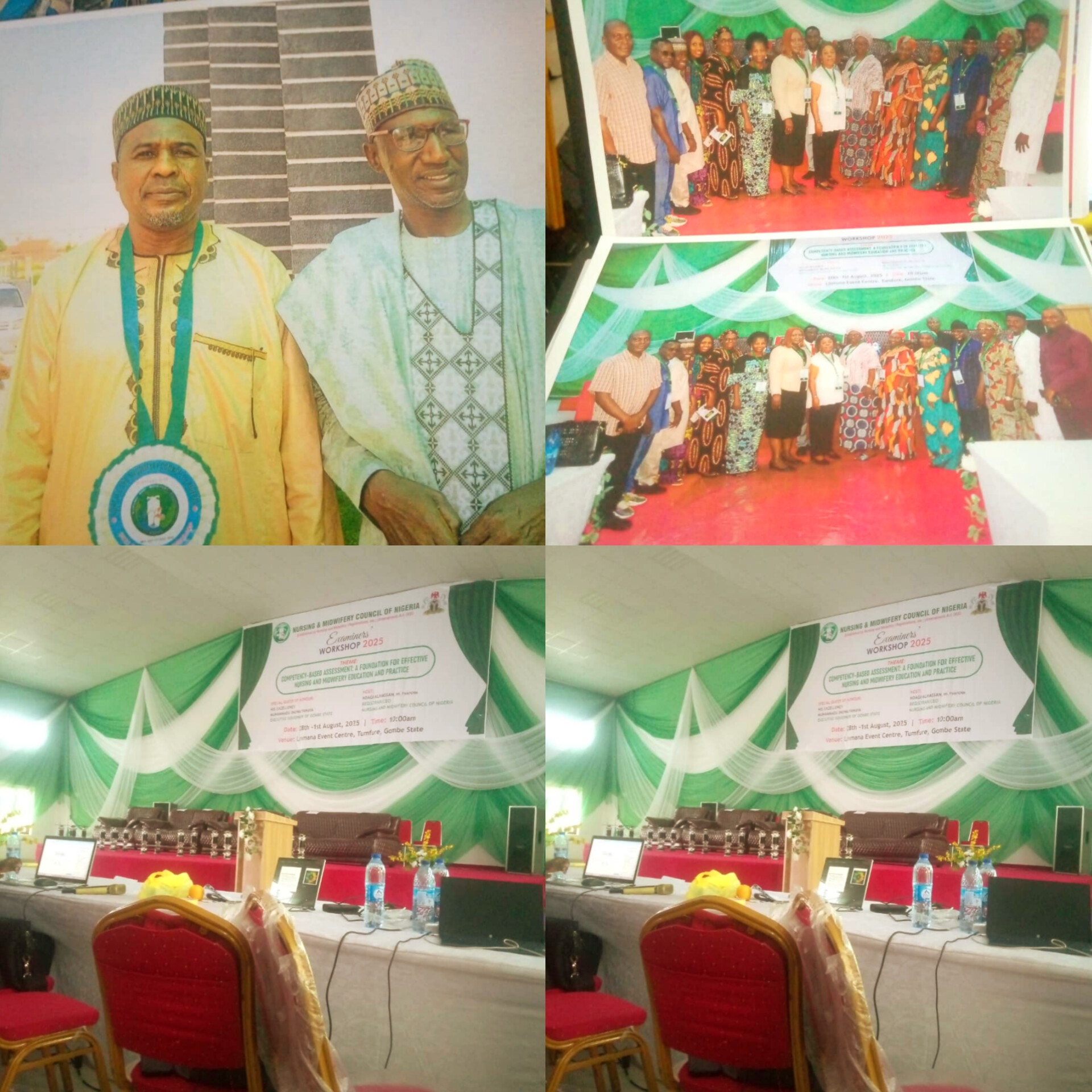
By Editor Daily Facts
Nurses and midwives across Nigeria have been charged to uphold professionalism, compassion, and adaptability in delivering quality healthcare services, as Gombe State hosted the 2025 National Examiners Workshop organized by the Nursing and Midwifery Council of Nigeria.
Declaring the workshop open on Tuesday in Gombe, Governor Muhammadu Inuwa Yahaya, represented by the Commissioner for Health, Dr. Habu Dahiru, commended the Council for selecting Gombe State to host the crucial event. He emphasized the commitment of his administration to improving the health sector through policy reforms, infrastructure development, and capacity building.
“We have prioritized the health sector by upgrading Primary Healthcare Centres (PHCs) across all 114 wards in the state. This is to provide an enabling environment for healthcare professionals, including nurses and midwives, to deliver effective services,” Dr. Dahiru said.
He revealed that the state government has made significant improvements to the welfare of nurses and midwives, and urged them to show empathy in dealing with patients.
Dr. Dahiru also used the platform to call for a comprehensive review of the national nursing and midwifery training curriculum. He noted that the advent of Artificial Intelligence (AI) and other technological innovations in the global healthcare landscape demands that Nigerian practitioners adapt to modern trends.
“This is the time to update the training manual to reflect emerging realities. The future of healthcare lies in innovation, and nurses—especially those in rural communities—must be equipped with the skills and knowledge to meet these evolving challenges,” he added.
The guest speaker, Professor Saleh Garba, lauded the organizers of the workshop and urged participants to make practical use of the knowledge and skills acquired during the training. He described the workshop as a vital platform for updating participants on global best practices in nursing and midwifery education.
Also speaking at the event, the Emir of Akko, Alhaji Umar Muhammad Atiku, described nurses and midwives as pivotal members of society who contribute meaningfully to community well-being. He appealed to all levels of government to prioritize investment in their welfare for improved service delivery.
The theme of the 2025 workshop, “Competency-Based Assessment: A Foundation for Effective Nursing and Midwifery Education and Practice,” underscores the need for a modernized, skills-based approach to training that aligns with international standards.
The workshop brought together examiners, educators, health professionals, and stakeholders who deliberated on critical aspects of nursing education, including curriculum review, assessment methods, and integration of emerging technologies.
As the healthcare sector continues to evolve, stakeholders at the workshop agreed that the challenge ahead lies in how quickly nurses and midwives can adapt to change—not only to enhance service delivery but also to strengthen the nation’s overall health system.
ENDS
Health
Gombe State Strengthens Health Sector with Four-Day Capacity Building for Health Managers

By Muhammad Jamil Abubakar
The Gombe State Government has commenced a four-day capacity development workshop for health managers and leaders, aimed at improving the state’s Annual Operational Plans (AOP) and enhancing healthcare delivery systems. The initiative is supported by the Nigeria Health Sector Renewal Investment Initiative (NHSRII) in collaboration with key development partners.
Speaking at the opening of the workshop, Gombe State Commissioner for Health, Dr. Habu Dahiru represented by the Permanent Secretary of the Ministry, Dr. Ibrahim Yakubustated that the training will empower health personnel to effectively plan and execute health interventions across the state. He emphasized the ministry’s commitment to ensuring no stakeholder is left behind in driving progress in the health sector.
“The AOP reflects all activities scheduled for the year and will guide service delivery in both rural and urban communities,” Dr. Yakubu said, noting that the initiative aligns with Governor Muhammadu Inuwa Yahaya’s strong support for health sector reforms in the state.
Also addressing participants, the Director of Planning, Research and Statistics at the Ministry of Health, Dr. Suraj Abdulkarim, said the workshop is historic, as it marks the first time the Sector Wide Approach (SWAp) a strategic planning and coordination model has been fully adopted in Nigeria at the sub-national level.
He explained that last year’s operational plan identified key priorities, especially those targeting women, children, and newborns, in line with national and global health targets. Nigeria currently contributes nearly 25% of global maternal mortality, a burden the Gombe government aims to reduce through focused interventions.
Dr. Abdulkarim also highlighted the MAMMI program initiated by the state government, which focuses on six key areas including maternal health. A unit has been established to monitor and improve healthcare delivery at the primary, secondary, and tertiary levels.
The program also addresses human resources for health. Measures are being put in place to assess available skilled personnel, deploy them strategically across the state, and provide incentives such as rural accommodation and motivation packages to retain staff in underserved areas.
Improved data collection and evidence-based decision-making are also priorities under the program.
Dr. Tolu Adeniji, a Consultant Public Health Physician with NHSRII, described the training as a cascade model that builds leadership, systems thinking, and problem-solving capacity at all levels of government. According to him, the initiative stems from a national agreement between the Nigeria Governors Forum, the Ministry of Health, and the Presidency to harmonize health efforts and improve key performance indicators across states.
Dr. Adeniji said the workshop will enhance planning capacity within Ministries, Departments, and Agencies (MDAs), with lessons from the training to be scaled down to local government health teams ensuring inclusive and sustainable improvements in healthcare delivery in Gombe State.
-

 Leadership1 year ago
Leadership1 year agoBreaking: African Union Appoints Pantami as Co-Chair of the 4th Industrial Revolution Policy Council
-

 Politics2 years ago
Politics2 years agoFormer Gombe State APC Promoters Forum Chairman Attacked Following Political Commentary
-
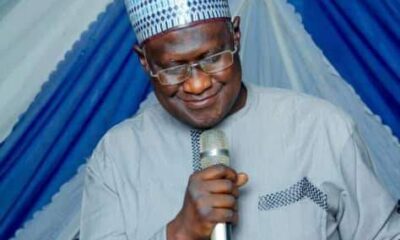
 Appointment10 months ago
Appointment10 months agoGombe State Indigene, Appointed New Vice Chancellor (ATBU)
-
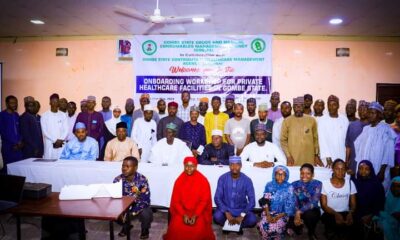
 Health1 year ago
Health1 year agoGombe State Organizes Onboarding Workshop for Private Healthcare Facilities
-
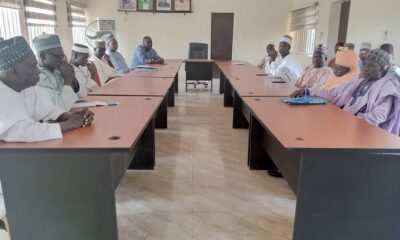
 Water1 year ago
Water1 year agoGombe Government Mobilizes Stakeholders to Combat Illegal Water Connections
-
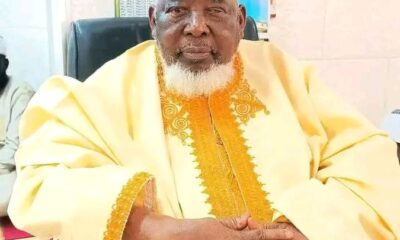
 Death5 months ago
Death5 months agoProminent Nigerian Islamic Scholar, Sheikh Sa’idu Hassan Jingir, Passes Away
-
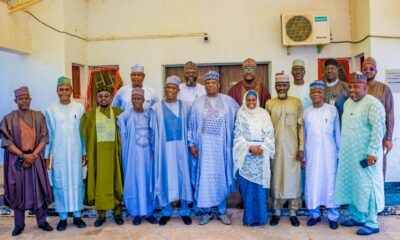
 Politics1 year ago
Politics1 year agoGombe State Inaugurates Human Capital Development Council
-
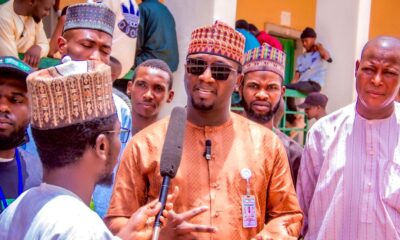
 Politics1 year ago
Politics1 year agoGombe State Launches Presidential Palliative Program (PPP) to Aid Small Businesses
